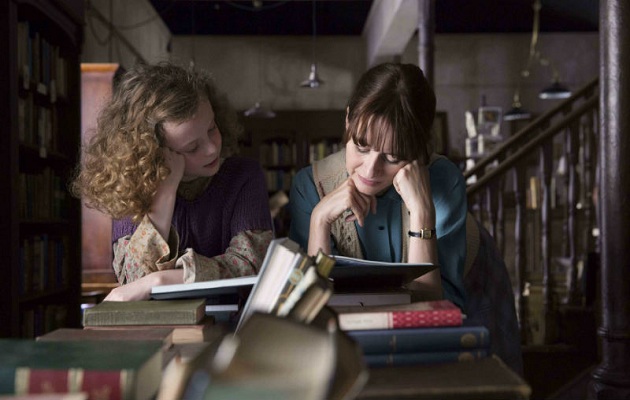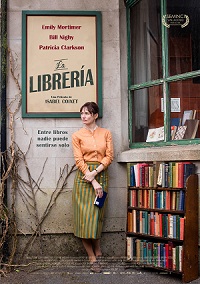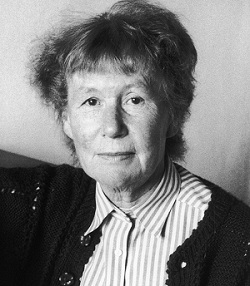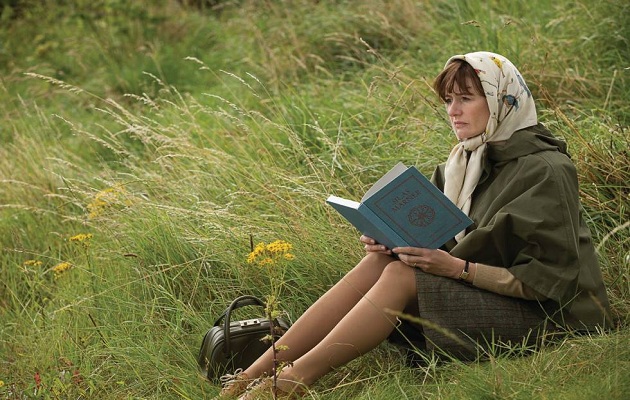Why do we read?
Florence’s initiative in “The Bookshop” brings about a small revolution. As everyone knows, reading is a dangerous activity.
08 MARCH 2018 · 10:04 CET

A character in the film “Shadowlands” tells C.S. Lewis that “We read to know we are not alone”.
Isabel Coixet takes this up in “The Bookshop” – a film that has earned great acclaim in the Spanish Goya awards and has been presented at the Berlin Film festival – to show us that no one feels lonely when they are surrounded by books. What’s more, sometimes when we read, we realise that the books are reading us. I could tell you of a book that contains life itself.
Reading is not just company for the lonely, but it is pleasure. There is nothing more ridiculous than forcing someone to read. If books were banned, teenagers would soon be reading in secret. But the truth is that those who don’t read don’t know what they are missing. Reading not only teaches you to write – the best way to learn how to spell is by reading– but it also allows you to live other lives – a thousand according to Jojen in “Game of thrones”–, while those who never read only live one.

THE PLEASURE OF READING
Coixet’s film is successful in expressing the sensuality of physical books; something that a digital document lacks. I buy books for their covers, their binding, their beauty and the agreeable feeling of holding a well-edited volume in my hands. It is the printed page that I like, while the digital page doesn’t do anything for me. That is why I believe that literature will never disappear. Our overexposure to the virtual world would make losing the pleasure of the feel, look and sheer materiality of books unbearable.
“The Bookshop” is a delicious film, full of nuance and detail, giving us a more contained Coixet who here focuses on storytelling. Its tone is surprising, not only because of its sobriety, but also because of the subtlety of its humour and the absence of any moralizing.
It tells the story of a young widow who in 1959 decides to realise her dream of leaving her home in London, to open up a bookshop in a small coastal town in Suffolk– although the film is shot in Northern Island –, where there seems to be little need or passion for reading.
Florence’s initiative brings about a small revolution. As everyone knows, reading is a dangerous activity, which is why our political leaders would prefer it if we didn’t read. Although the story begins in a bucolic idyll, the terrain soon becomes more sinister. The bookseller is hounded into a corner, with only the help of the village hermit and an imaginative little girl, against the onslaught of neighbours that disapprove of anything that could produce pleasure, infuse knowledge, inspire adventure or provide succour.
A LITTLE-KNOWN AUTHOR

“The Bookshop” was written in 1978, although its action is set at the end of the 1950s. The story reflects the controversy caused by Nabokov’s “Lolita” in 1955, which is as “politically incorrect” today as it was then. It also features the “Martian Chronicles” and “Fahrenheit 451” by Ray Bradbury –interestingly, the narration is read by actress Julie Christie, who starred in Truffaut’s 1966 “Fahrenheit 451” film. This is a love poem to books written by Coixet, here a delicate and subtle silversmith of images and silences, full of small and revealing gestures.
The film revolves around the stunning performance of Emily Mortimer, who comes across very naturally and unaffected. But the great success of the film is that you leave the cinema wanting to touch, smell and read a book, a pleasure which many are yet to discover.

The Spanish statesman and writer, Manuel Azaña, once said that the best way of keeping a secret in Spain was to write it in a book. No one would find out. It is true that in Spain, most books are published without even a review in the specialised press. Evidently, if you are after posterity, don’t go into the writing business!
THE BOOK THAT READS US
Calling the Bible the Book of books, is not only an indication of the significance of the most read title in the world – close to four billion copies have been published and sold in the last four decades alone –, but of the singular nature of the only Book that reads us – as the Swiss theologian Karl Barth once said –. The Bible is not only the revelation of God to the believer, but also of ourselves. It shows us a side of us that we would prefer not to see, but which is as real as the disappointment we feel when we see ourselves in the mirror every morning.
Since the Fall of Man, recounted in Genesis Chapter 3, humans have had too high an opinion of themselves. As Augustine said, pride is the commencement of Man’s sin, although awareness of our shortcomings often makes us feel self-contempt and even hatred. It is important to have a correct image of ourselves, but this is only possible through the One who knows us better than ourselves.
As in the story of Robinson Crusoe, it is when we find ourselves on the island of our solitude that reading the Bible leads us to repentance and, as Defoe observes, this is something that only God can bring about.
Reading the Bible is dangerous. It can change your life. That is why many people advise us to stay away. It is a dangerous book because once you have read it you will never be the same again.
Published in: Evangelical Focus - Between the Lines - Why do we read?
